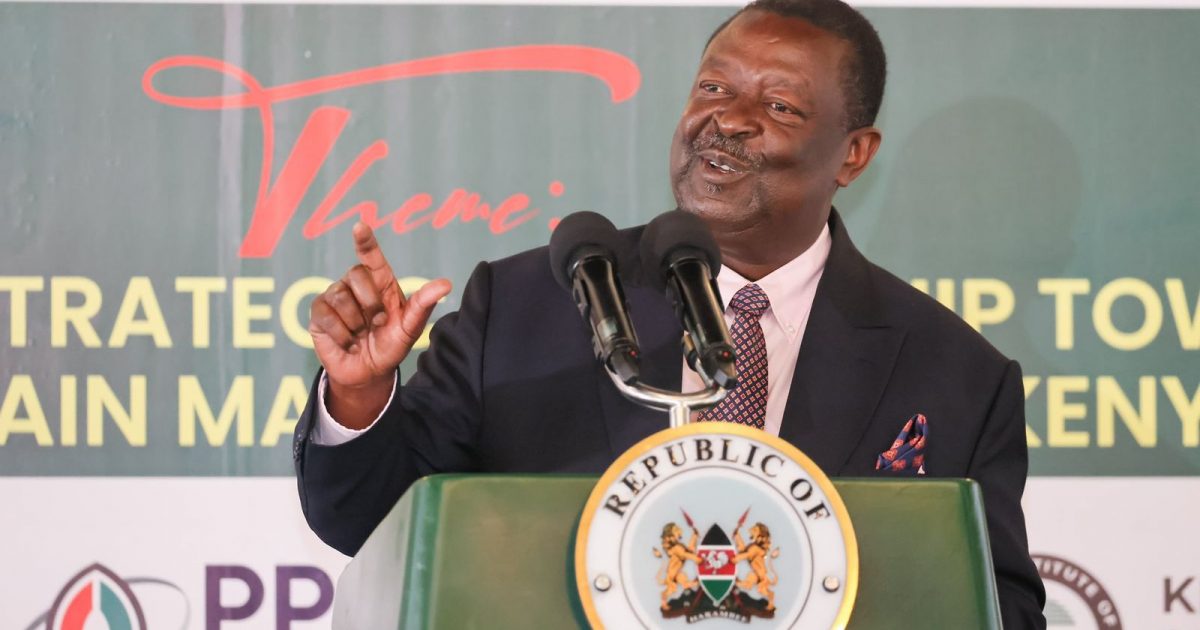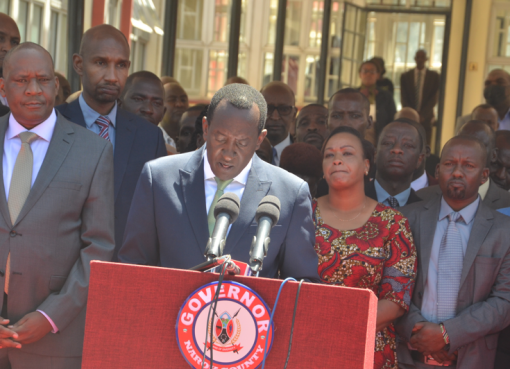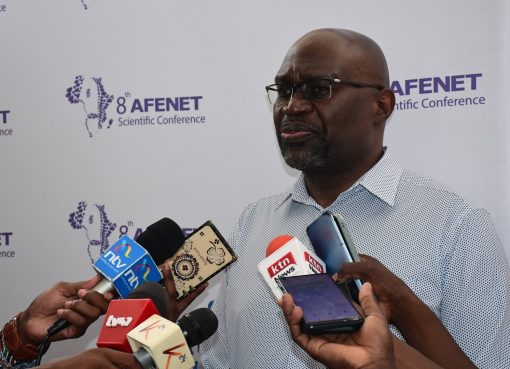The Prime Cabinet Secretary, Musalia Mudavadi, has urged the Heads of Procurement and Supply Chain to ensure that the government gets the value for the taxpayers’ money.
Mudavadi asked the officers to ensure that all procurement processes were efficient and delivered maximum value for money for the good of the public and the general economic growth of the country.
In his keynote address at the 3rd Heads of Procurement and Supply Chain Forum held at a Mombasa hotel, the Prime Cabinet Secretary noted that by asking the Heads of Procurement to arbitrate in stabilising the economy, he has offered them an opportunity to reflect on how they can position their profession to support the country’s development agenda.
This will in effect change the negative perception and blanket condemnation of corruption about the noble profession by ensuring that their members operate within the laid-down legal and regulatory frameworks.
He encouraged them to harness the power of emerging technologies such as Artificial Intelligence, blockchain, and Cloud Computing to advance ethical practices and drive innovation in the Industry.
Mudavadi emphasised that this could be instrumental in aiding the nation to stabilise its economy and create more growth opportunities while also safeguarding the livelihoods of its citizens.
“Procurement and Supply Chain Management stands at the heart of the country’s social and economic transformation. As we navigate economic challenges intensified by global conflicts and climate change, we must exercise strategic leadership to alleviate supply chains and ensure procurement processes deliver value for money at every level,” he added.
The Prime CS, who is also the Cabinet Secretary for Foreign and Diaspora Affairs, said that the challenges of climate change, including last year’s drought and floods, have contributed to a significant increase in the cost of living.
Further pressure from high debt service has forced the government to make ‘haircut’ budget adjustments on essential public sector development programs.
“The situation is so tight that we have been forced to make difficult decisions to keep our country in motion and avoid public confrontation with the people, particularly our youth, who have recently expressed their displeasure about the cost of living and lack of jobs through public demonstrations,” he said.
He further explained that this has slowed down the implementation of the government’s Bottom-Up Economic Transformation Agenda (BETA), thus crippling the ambitious vision of economic and social transformation.
However, he assured that the government, amid this crisis, has taken serious austerity measures to improve efficiency in allocating resources and cut back on wasteful expenditure.
The Chairman of the Kenya Institute of Supply Management, John Karani, called on the government to review the legal framework guiding the procurement sector, citing that the policies have served for at least 10 years and hence it is time for a change.
“Indeed, time is right for a review of this legislation framework to ensure that we take into account emerging issues in the field of procurement,” noted the Chairman.
Additionally, he noted that the challenge of school procurement should be highly addressed, citing that over 30,000 schools have underqualified procurement professionals.
“Some of these schools have bigger value for money than other institutions, although it has come to our realisation that with a lack of professionalism, procurement loses its value for money; hence, we urge the government to work closely with KISM so that we can entrench professionalism in schools across the country,” added Karani.
By Fatma Said and Nuru Soud





